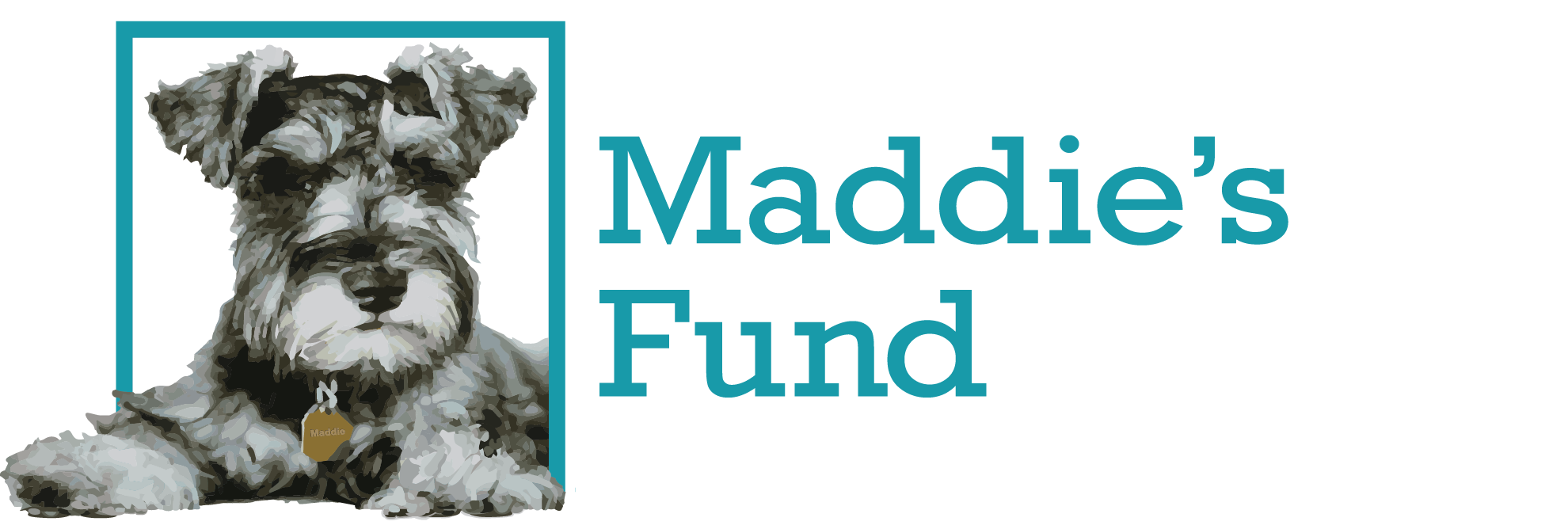Why would we tell you not to think about the animals? Because as counter intuitive as it may seem, you’ll probably find that spending less time thinking how to do a better job helping animals and more time doing and thinking about nothing in particular can create space for the very insight you need to do that better job.
Consider gravity. Isaac Newton didn’t discover its principles hunched over a book or working in his laboratory. He was wandering aimlessly in an apple orchard.
And if science isn’t your thing, consider the fortune made by Arthur Fry over a little invention he made while praying in church: that ubiquitous piece of modern culture known as the Post-it Note.
For the last year, Maddie’s Fund® has been working with the concept of the Aha! Moment, those flashes of inspiration we get, usually when we’re doing or thinking about something entirely unrelated. We’ve shared nine stories of shelter directors, their Aha! Moments, and how they acted on them to help the animals in their care. The Aha! Journey became the unifying theme of our conference presentations and education all year.
“We already have all the tools and programs we need to ensure all healthy and treatable cats and dogs have a home or habitat,” said Mary Ippoliti-Smith of the Maddie’s Fund Executive Leadership Team. “We don’t have to wait for that one great thing that needs to happen. But if everything is out there, why aren’t people doing that? What’s holding them back?”
In asking that question, the Maddie’s Fund team realized it’s not always easy for busy animal welfare workers to know where to start. “There’s so much out there,” Smith said. “It can be overwhelming. So we started talking about inspiration, about cutting through the noise, about the ‘eureka’ moment, the aha moment, when people realize that things can change.”
“We did some research on how people have moments of inspiration,” said Dr. Laurie Peek, also of the Executive Leadership Team. “Sometimes, reaching a breakthrough can take many years, but that’s not what we want to see happen in our journey to no-kill. We want to hurry that process along. And what we found out is that for most of us, getting there faster means slowing down the trip, taking detours and relaxing.”
The reason behind that, Peek said, is that our brains work in an associative way. They tend to follow links between ideas and memories, awareness and conclusions, in ways that aren’t strictly linear and can’t be forced. “You can’t have an Aha! Moment if your brain isn’t in a relaxed mode,” she said. She described how in one study, researchers found that people solve complex puzzles with flashes of insight, and their brains signal that those flashes are happening with a change in wave patterns. “We want people working with animals to engage in activities that create space in their minds for those flashes to occur, to coax their brains into those inspired wave patterns,” she said.
Said Smith, “We all over-complicate this process. The truth is, sometimes very small changes can make a huge difference. Look at how powerful it was when Dr. Kate Hurley and her team started talking about putting holes in between cat cages. Look how revolutionizing that was for the animals, to talk about them getting more space just by reallocating the space you have.
“Or the Million Cat Challenge saying, ‘If you can’t offer a live outcome to a cat, don’t take the cat in.’ That’s powerful, and that’s simple.”
The Aha! Journey is also about changing how people think about the whole process of “problems” and “solutions.” It’s become a cliche to say there are no problems, only challenges or opportunities, but like all cliches, this one is based on a reality: When we are excited and inspired by coming up with solutions, problems no longer feel so, well… problematic.
“If someone is challenged by something, we’d like them to see this as ‘their moment to shine,'” said Peek. “They’ve been given an opportunity to create new ways of helping animals. This is a gift! It’s a chance for them to step up, take the lead in something, and be a hero to the animals.”
Maybe obstacles will transform into opportunities more easily if animal welfare workers understand that the solutions they’re working so hard to come up with already exist, Peek continued. “Everything is there. You didn’t just lose your keys, they’re in your house somewhere. You just have to slow down and give yourself a moment and not panic, and know that you have what it takes to solve it.”
People who learn meditation are often advised, “Don’t just do something, sit there.” That can be easier said than done, as anyone who’s ever tried to meditate in the midst of chaos or crisis — or even just when their back is hurting — can attest. But in many cases, the problem is simple: we’re spending too much time being “busy” instead of resting and spending time on our own.
In a study done this year at Durham University, more than 18,000 people from 134 different countries participated in the “Rest Test,” an online survey designed to explore the ways in which people rest, how much rest they get, and their attitudes toward relaxing and being busy. Among its findings:
- People who say they don’t get enough rest score lower in well-being
- Those who say they get enough rest had well-being scores twice as high as those who don’t
These were the activities most people said they found “restful”:
- Reading (58%)
- Being in the natural environment (53.1%)
- Being on their own (52.1%)
- Listening to music (40.6%)
- Doing nothing in particular (40%)
Researcher Dr. Felicity Callard of Durham University commented, “It’s also intriguing that the top activities considered restful are frequently done on one’s own. Perhaps it’s not only the total hours resting or working that we need to consider, but the rhythms of our work, rest and time with and without others.”
Smith agreed. “When I find myself getting stressed about a situation, I start to focus on my breathing,” she said. “I take five breaths in and out, and I start to feel differently. It’s a very positive feeling for me, and it helps turn things around. And I can do it any time! Nobody knows but me. And now, taking that feeling and translating it into the work we do for cats and dogs has become part of the Aha! Journey.”
Some people just need support in believing change is possible to set themselves free of non-productive business and obsession. “Sometimes people feel there’s nothing, no hope, no resources,” said Peek. “We want to inspire them and give them some hope with our educational programs, our mentorships, and our grants. We want to wrap all that up so people will have the space to believe they can have their own Aha! Moment.”
If you do feel trapped in the status quo, she said, “Try the deep breathing. Go outdoors. Get into the right frame of mind to ponder the whole issue without judging it. Believe you have it within yourself to solve the problem if you only give yourself time and space to do it.”
So sit down or go out, clear your mind, get some rest, and see what happens. And if you get an Aha! Moment? “Apply to Maddie’s Fund for an innovation grant!” said Peek. “They’re offered throughout the year. That’s what they’re for, helping you turn your Aha! Moment into action for the animals.”

